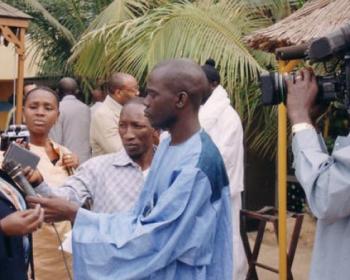DRC
As the world is about to celebrate 16 days of activism against gender-based violence, and following the taking of Goma and Sake, two cities in eastern Democratic Republic of the Congo by the M23 rebels, the young feminist and congolese organisation Si Jeunesse Savait is concerned by recent developments in the situation, which echoes through the media.
SMS services have been suspended in the Democratic Republic of Congo allegedly to prevent the spread of electoral related rumours. Cutting access to communications is a violation of the rights to freedom of expression and freedom of information protected under the DRC constitution and Universal Declaration of Human Rights.
The Democratic Republic of Congo’s (DRC) capital city of Kinshasa, dubbed the “capital of rape” by the UN special rapporteur Margot Wallström, is a city fraught with violence and remnants of a war-regime. But women in the city are taking charge of their lives and demanding for more security, more services to help women survivors of violence, and an end to the impunity for those who rape,...
This meeting is part of the MDG3: Strengthening women’s strategic use of ICTs to combat violence against women and girls project run by the APC women’s programme (APC WNSP).
CATIA was a three-year project supported by the UK Department for International Development (DFID) to enable Africans to gain maximum benefits from the opportunity offered by ICTs and to act as catalysts for policy reform.
Pages

Association for Progressive Communications (APC) 2022
Unless otherwise stated, content on the APC website is licensed under Creative Commons Attribution 4.0 International (CC BY 4.0)




